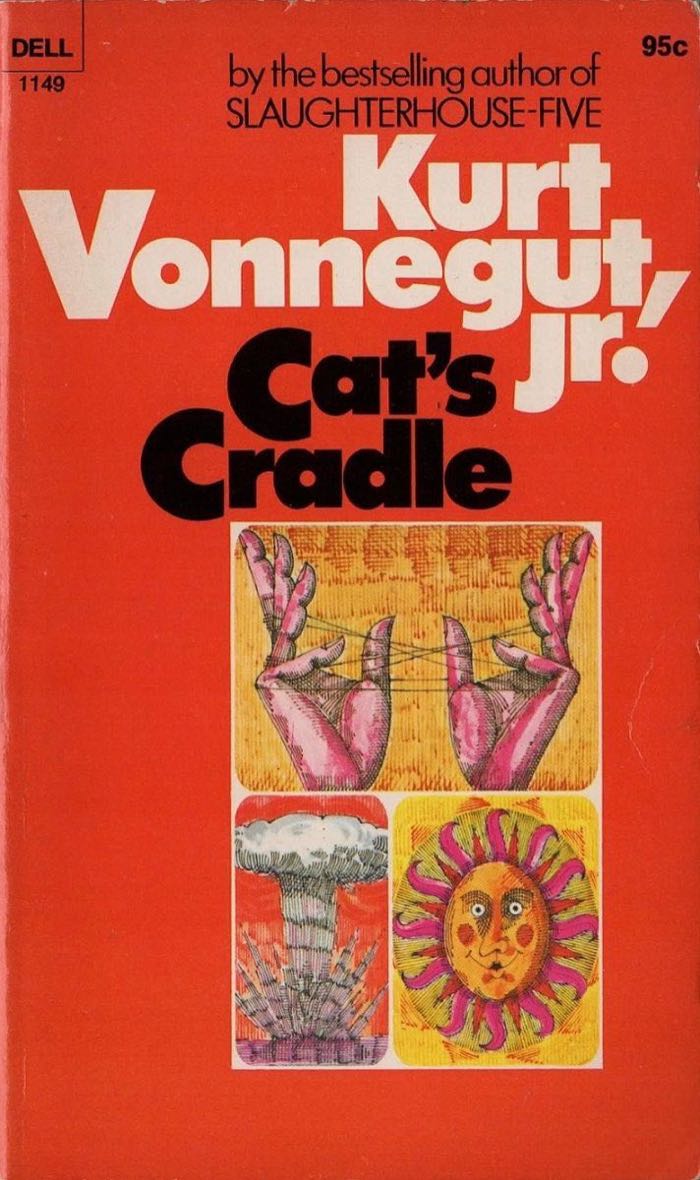Cat's Cradle
Reviewed date: 2005 May 26
Rating: 4
191 pages
Cat's Cradle is less a science fiction novel than a philosophical book. The science consists of only one element: the fictional ice-nine, a crystalline form of solid water with a melting point of 114.4 degrees Fahrenheit. Ice-nine is a seed--any water touched by ice-nine instantly crystallizes into ice-nine as well. Drop a splinter of ice-nine in a bucket of water and the whole bucket is ice-nine.
But ice-nine is only the gimmick. Cat's Cradle is about philosophy, religion, and the meaning of life. The philosophy of the book is nihilism, it is the emptiness and meaninglessness of life even as we invent patterns and meanings for ourselves.
The plot itself is simple. We follow the narrator as he interviews people for his book about Felix Hoenikker, the inventor of the atom bomb. In the course of his research he learns about ice-nine and the world-destroying danger it presents. He learns also the of Bokononism, a religion emphasizing love, fate, and the patterns of the universe; a religion whose inventor declares upfront that it is a pack of lies.
Echoing the emptiness of Bokononism is the novel's plot. None of the characters do anything of importance. They are carried along by events as puppets in monstrous meaningless performance.
It's a good read. Reminds one a little of Bradbury's nostalgic writing, but with more philosophy thrown in. It is a well-written little novel. Don't take its philosophy too seriously--as the author warns, "Nothing in this book is true."
